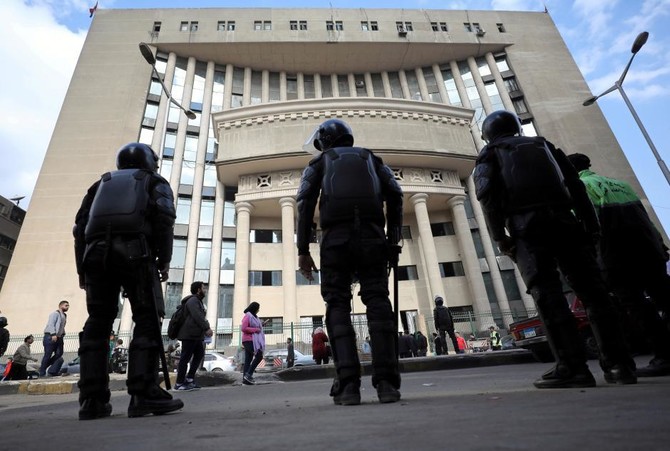‘Homegrown Islam project’ could lead to new Ankara-Berlin tensions
ANKARA: Germany has reportedly initiated a campaign to push German Muslims to develop a new interpretation of Islam, the Financial Times reported on Monday.
“What we need now is an Islam for German Muslims that belongs to Germany,” Markus Kerber, the government representative responsible for relations with the Muslim community under the German Interior Ministry, reportedly told the Financial Times.
The move of Europe’s economic powerhouse is expected to influence Turkey’s state-led diaspora engagement with German-Turks as well as its state-level relations with Germany. But experts do not anticipate relations to further deteriorate as they say they are already as bad as they can get.
Turks, mostly from the conservative section of society, have been emigrating to Germany since the early 1960s; originally as guest workers during the economic boom. They have since become the largest Muslim community in the country.
Germany’s new plan aims to counter foreign influence on the Muslim community and provide homegrown training to all imams preaching in Germany.
The largest Islamic organization in Germany is the Turkish-Islamic Union for Religious Affairs, which is affiliated to Turkey’s state directorate for religious affairs. Turkey is sending imams to Germany who are paid by the Turkish government and who are preaching in Turkish in 900 mosques funded by Ankara.
According to Yoruk Halil, a halal butcher living in Frankfurt, Germany’s new move will be beneficial for the Turkish Muslim community.
“Those imams coming from Turkey do not benefit Turkish youth in Germany because these young people have been raised with a totally different culture and they mostly speak German, so they cannot establish a healthy dialogue with those imams,” Halil told Arab News. “In order to reach out to the Muslim community, including Turks, there is a need to use homegrown imams.
My 15-year-old son has been going to the mosque for five years and he even told me that he has better communication with imams being trained and educated in Germany,” he said.
There is also a continuing debate over requiring Muslims in Germany to pay a worship tax.
Turkey is against any “Germanification” of Islam and considers any redefinition of Islam for Germany against the universality of the religion.
Germany’s move intends to further integrate Muslims’ daily routines into German society, to boost the loyalty of the 3 million members of the German-Turkish community. It is therefore considered a move for breaking the Turkish community’s ties with their national and religious identity as well as their traditions.
Last year, German police recorded some 578 hate crimes against Muslims between January and September, while about half of Germans think that Islam is incompatible with the values of their nation, according to recent research by pollster YouGov.
“Turkey has been developing diaspora politics since the mid-2000s, and Turks in Germany have been put at the center of it,” Murat Onsoy, an expert in Turkey-Germany relations at Hacettepe University in Ankara, told Arab News.
However, for Onsoy, the presence of imams in Germany who have been appointed by Turkey is a socialization factor for the Turkish diaspora — who show relatively low rates of crime — and to maintain their links with their home country.
“If Germany rejects Turkish funding to these mosques, they will face serious difficulties in covering their expenses,” he said.
Germany has a community of about 4.5 million Muslims worshipping at about 2,400 mosques, and the number is expected to rise with the refugee influx from Muslim countries such as Afghanistan and Sy The German federal constitution, called Basic Law, gives autonomy to Muslim communities to receive funding and religious officials from abroad to operate mosques in Germany.
“It is unlikely that this article of the constitution would be easily amended. Various provinces would react to such a move, resulting in widespread protests. The Turkish government would raise the issue at the intergovernmental Islamic organizations, and the German government would be obliged take a step back,” Onsoy said.
He, however, draws attention to the timing of the debate.
“It coincides with the upcoming local elections in Turkey this Sunday, and in the past we witnessed that such potential crises with Western countries have been used by the ruling government to consolidate its voters through engaging in international polemics and assuming the role of the defender of external Turks and ‘Islam’ worldwide,” he said.
Ayhan Kaya, professor at Istanbul Bilgi University, said that the move in Germany to bring a homegrown reading to Islam had already been on the table since Angela Merkel’s initiative in 2006.
“Although it contradicts with the Sunni Islam rhetoric, what Germany did is a counter-move against the lobbying strategies of Muslim countries such as Turkey, Morocco or Algeria within German territories,” he told Arab News.
Kaya also noted that in the past Germany and Turkey developed joint projects to train imams who would be appointed in Germany by providing them with linguistic and cultural-integration skills.
“This latest move is a dialectic result of the political maneuvers on the diasporas by countries who are sending and receiving migration,” he said.

Merkel, Erdogan hold tense talks in shadow of protestsGermany, Turkey hail progress in handling refugee crisis



